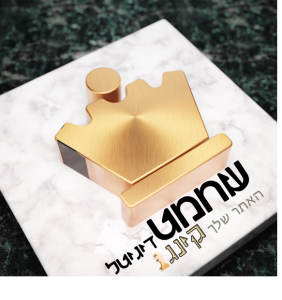Parshas Yisro -THE FIRST MAN TO SAY THANK YOU!
“Blessed be the Lord who delivered you from the Egyptians and from Pharaoh… Now I know that the Lord is greater than all the gods” (Shemos 18:10-11).
Reb Papayus maintained that it was a disgrace that Moshe and the 600,000 [Children of Israel that left Egypt] did not say “Baruch Hashem [Bless the Lord],” until Yitro came and said “Baruch Hashem“(Sanhedrin 94a).
It is noteworthy that our Sages were outspokenly critical of both Moshe and the rest of our nation for not having said Baruch Hashem!
How remarkable that Chazal noted that Yitro was the first to say Baruch Hashem and praise G-d. The song that the Bnei Yisrael [Children of Israel ] sang when they came out of Egypt [Shirat Hayam ], praised G-d. Why then does Yitro get the credit for being the first to praise G-d when the Children of Israel had already shown their appreciation and praise to G-d when they left Egypt?
The answer to this question may be found by a study of Shirat Hayam. In that whole text there is no mention of Bnei Yisrael being saved from slavery and their release from Egypt. Indeed, Bnei Yisrael praised G-d for destroying the Egyptians “This is my G-d,(as if to emphasize my G-d won), I should glorify him” but they forgot about their redemption which was in fact far more important for them than the destruction of the Egyptians. One is reminded of when one gives a child a present, he holds on to it tightly and says “it’s mine, it’s mine” and he doesn’t let anyone touch it. He is so busy saying its mine that he doesn’t have the time to actually enjoy the gift. The Bnei Yisrael were similarly immature in that they did not incorporate into the Shira their thanks for their freedom. Not only that, but as the Children of Israel praise to G-d, the angels wished to sing as well. G-d objects to the angels doig so, saying: “The works of my hands are drowning in the sea, and you wish to sing praises!”
Indeed the Bnei Yisrael did not say Baruch Hashem for being saved!!
We have here a remarkable insight in to the nature of Man. We feel grateful and are prepared with joy and happiness to praise Him for all His attributes. At the same time, it is difficult for us to say thank you for Him helping us. We do not wish to declare that we ourselves are beholden to our Benefactor, for we could not have survived with out His help.
Similarly in our relations with our fellowman to whom we are beholden, we may say “You are a wonderful person, you help so many people” and similar statements of general appreciation. However, to say thank you for saving me- I would not be here without your aid and assistance, is more difficult.
Yitro was the first to specifically thank G-d. “Blessed be the Lord who delivered you from the Egyptians and from Pharaoh” Only afterwards he gave a general thank you. “… Now I know that the Lord is greater than all the gods” (18:10-11).

 שחמט דיגיטל
שחמט דיגיטל